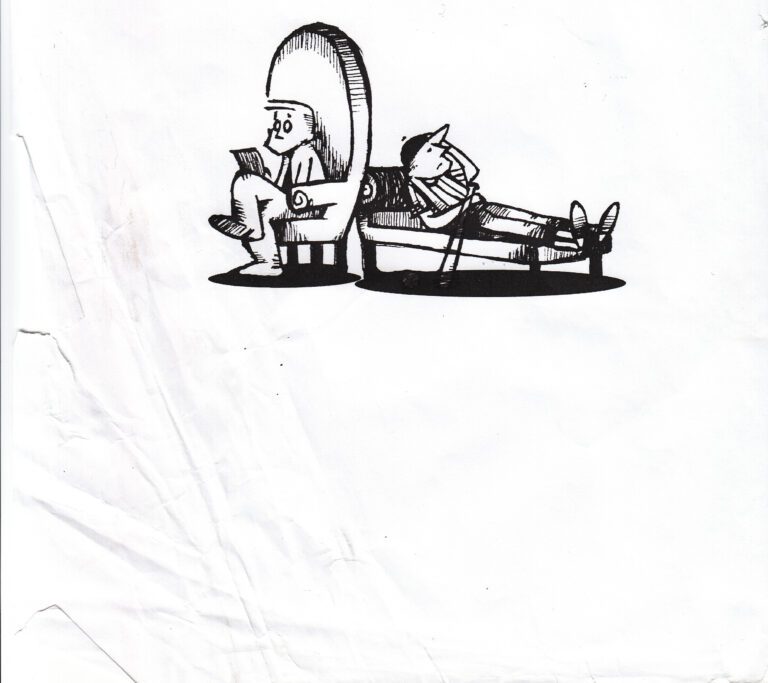
The term “nervous breakdown” carries with it sinister suggestions of mental collapse, psychosis, and catastrophe. We are witness to many high-profile athletes who have nervous breakdowns that make the news.
We recently watched young tennis superstar, Naomi Osaka, the highest paid female athlete in the world, have a breakdown at the French Open and walk away from tennis. In her case, the details were both grim and revealing. She refused to go to a post-game interview after the first round and was promptly fined $15,000 by the French Federation of Tennis. To this, she promptly walked out of the championship. That is comparable to Frank Sinatra or Elvis Presley walking out on a sold-out performance one hour before showtime.
In an Instagram, Naomi Osaka admitted that she had always been shy and had been suffering with depression ever since she had beaten Serena Williams at the US Open one year prior to that. Her depression was induced by a displeased New York crowd that was pulling for a Serena Williams win. It’s not good news to be sensitive if you’re a super star and Naomi Osaka is sensitive.
A breakdown refers to the way our defenses can shatter when faced with too much stress. You may recall the famous Rolling Stones song of 1966 entitled “19th Nervous Breakdown.” If not, here is one stanza:
“Well, it seems to me that you have seen too much in too few years,
And though you’ve tried, you just can’t hide, your eyes are edged with tears.
You better stop and look around,
Here it comes, here it comes, here it comes, here it comes.
Here comes your 19th nervous breakdown.”
These are excellent lyrics because they show that when one has seen too much at too young as age, your defenses become rigid, remain childlike and lead to a shattering, tearful, anxious breakdown. Many gifted or talented youngsters are in this predicament since they have seen too much and have done too much at too early an age. It is almost inevitable that they break down. Chronic stress like this precludes a normal childhood of play. The youngster does not have a chance to grow up slowly and this means that their defenses become rigidified and overused and this leads to trouble.
Nervous breakdowns mean your defenses do not hold up. You now might ask what exactly defense mechanisms are. Our defenses are almost always unconscious and used to keep us from feeling too much anxiety or loss. Many defenses are part of familiar nomenclature.
Here are a few defenses and how they work:
Compartmentalization. This is having the ability to put worries behind you for a while to carry on business. Bill Clinton was going through an impeachment, but he was still able to compartmentalize this and carry on his duties as president.
Gas lighting: Gas lighting is a frequently used term which means that a narcissist projects guilt onto someone else rather than admit that they are the culprits all along. The term “flying monkeys” is taken from the film “Wizard of Oz” and refers to the way narcissists enlist others to do their bidding.
Reaction Formation: Reaction formation is commonly seen as a form of behavior when a person acts friendly and pleasant to someone who is being abusive to them. They are actually angry but use reaction formation to pretend to be happy and nice instead.
Regression: Regression is reverting to a previous stage of development. When people get hungry or tired, they will often regress to more childlike whining behavior. Regression is often seen in students who are about to graduate from college. They regress into passivity and failure rather than face the next stage of maturity.
Dissociation: Dissociation is the temporary but drastic modification of character or identity to avoid distress. Although rarely seen in clinical settings, this condition is demonstrated in films like “The Three Faces of Eve.” I have treated a few multiple personality patients who dissociate quite often, and it is amazing to see them change behavior, facial appearance and tone of voice this way.
Psychosomatics. Nowadays this is a relatively common defense where the person converts a psychological or emotional state into a bodily symptom such as headaches, back pain or hives. America’s epidemic of psychosomatic illness is one reason CVS is always so busy and why pharmaceutical companies make so much money .
Humor, suppression, displacement, denial, rationalization and altruism are all examples of defenses we use every day to cope with the many challenges of life. Some of these are more effective than others and sometimes when one advances in career or gains fame like poor Naomi Osaka, their defenses break down and that’s when the psychoanalyst gets the call.






